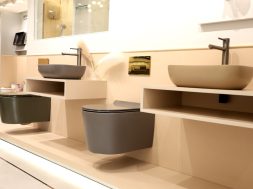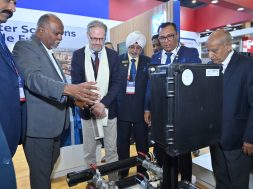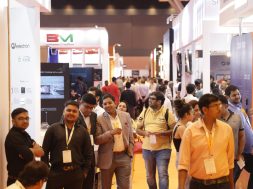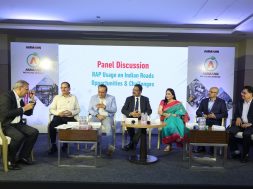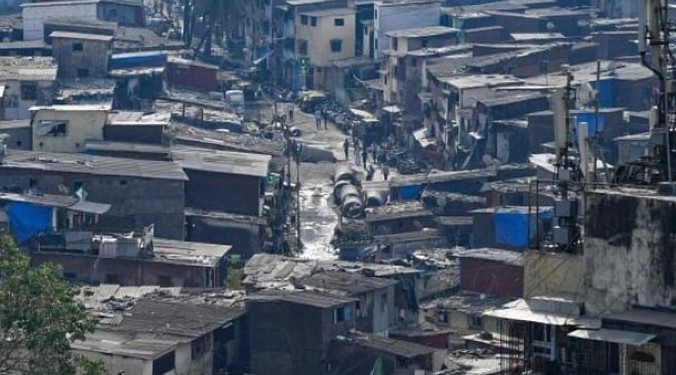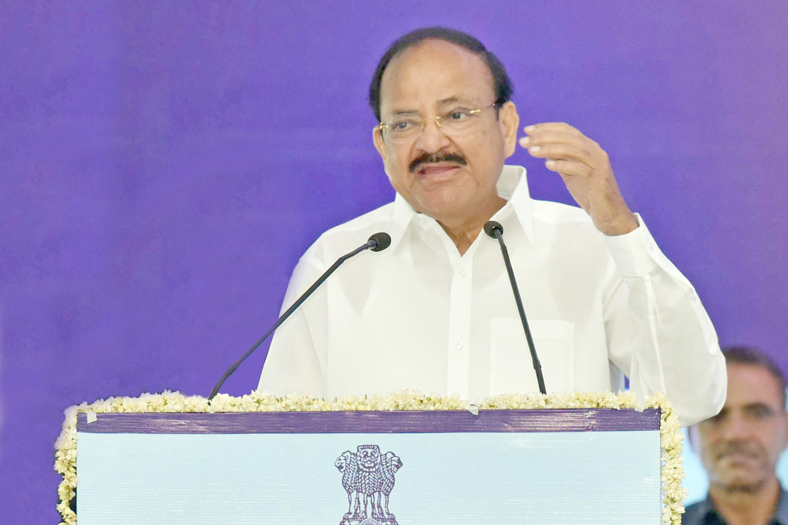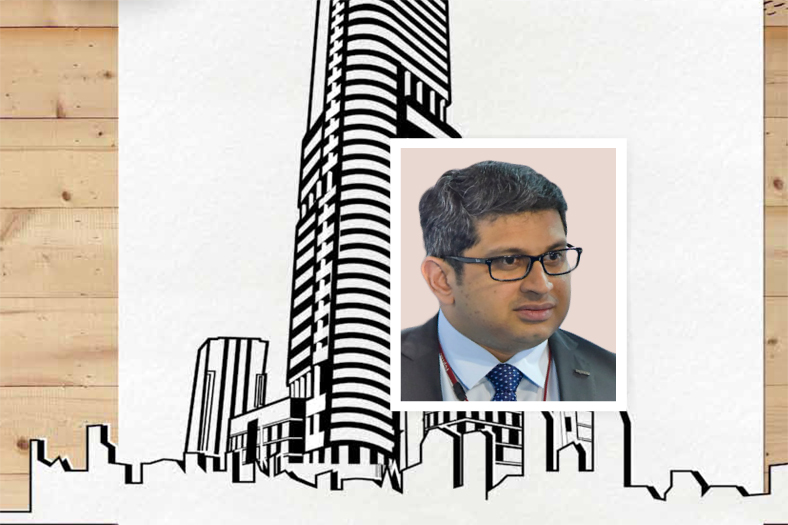Sustainability is deeply rooted: Punj Lloyd

Sustainability is already deeply rooted in the working of most infrastructure companies of good standing. Most of them release their annual sustainability reports based on GRI frameworks.
S K Goyal,President-Buildings and Infrastructure, Punj Lloyd
Tough time for construction industry
The going has been tough for most construction companies due to manifold issues, many of them are being resolved through the intervention of CII and other industry bodies which advocate for the sector at large, says S K Goyal, President–Buildings and Infrastructure, Punj Lloyd. He adds, “The largest issue has been the debt in these companies, often as a result of stuck claims and pending payments from clients, mainly PSUs. The sector has also seen a spurt of unorganised construction companies which have sprung up overnight with little or no experience and quality or HSE standards. The L1 syndrome where the lowest bidder wins the contract has allowed such fledgling companies to flourish as they compete with established companies who create quality infrastructure.”
Sustainability deeply rooted
With regards to bringing sustainability to the Indian construction industry Goyal says, “Sustainability is already deeply rooted in the working of most infrastructure companies of good standing. Most of them release their annual sustainability reports based on GRI frameworks.”
Working in diverse regions and in different communities and terrain, Punj Lloyd has always maintained focus on sustainable development practices. Sustainable development for the company stands for the balance between fulfilments of human needs with the protection of the natural environment so that these needs are met in the indefinite future as well. This is evident in most of its project sites where utmost care is taken to conserve the environment.
Informing about the practises followed to bring sustainability to the business S K Goyal, President –Buildings and Infrastructure, Punj Lloyd states, “As an OHSAS 18001, ISO 14001 and ISO 9001 certified company, we adopt the world’s best practices of Health, Safety, Environment and Quality (HSEQ). Our certifications have been received after a detailed assessment of our Quality Management Systems (QMS), Environment Management Systems (EMS) and Health and Safety Management Systems (OHSAS). At all our sites the world over, we conscientiously maintain a healthy, safe, sustainable and pollution-free work environment of the highest standards. As a global citizen, we have integrated the performance standards of the International Finance Corporation (IFC) into our HSEQ management system. This helps us to avoid, reduce, mitigate or compensate for the impact on people and the environment and to improve conditions where appropriate. Our efforts in HSEQ and this humanitarian sphere are widely acknowledged by clients, government agencies, non-governmental organisations (NGOs), and industry and business authorities.”
HSEQ promotion activities are high on Punj Lloyd‘s agenda, including the celebration of National Safety Day, AIDS Awareness Day and Environment Day at all sites. One of the most vital ways of improving safety is by minimising risk levels and human error. “We achieve this by our regular adoption of innovative methods and the latest technology, as in our use of automatic welding to eliminate our workers’ exposure to toxic smoke, radiation and high heat,” he adds.
Taking care of environment
Before construction of Baku Tbilisi Ceyhan pipeline, Punj Lloyd Limak – JV conducted a detailed vegetation mapping along the pipeline Right Of Way (ROW) and identified the threatened and rare species found in the area. The surveys were followed with documentation, compilation of environmental manuals, setting up of procedures, formulation of plans, establishing of special area reinstatement methods, preparation of reports and mobilisation of resources. During the construction phase, important areas were barricaded, erosion was controlled, ROW and rivers were protected and environmental training was imparted to all concerned. In the post construction phase, reinstatement and bio-restoration were the most important activities carried out.
The company’s special achievements at this site were successful reinstatement of the Zamanti River and innovative waste management activities carried out. The Zamanti River and its floodplain is home to fish, eel, aquatic and exotic plants and migratory birds. Between the periods of their migration, breeding and ecological constraints, it had only two months in the entire year to execute this important river crossing. Care was taken to preserve the top soil from the ROW and during mobilisation of equipment, reinstatement of river and its tributaries, re-contouring the land with re-growth of flora.
In Tunu Field Development project in Indonesia, effective monitoring and implementation of Environment Management Plan during construction in the restricted ROW saved the adjoining aqua culture ponds, fishnets, vegetation, flora and fauna in the Mahakam Delta. Continuous analysis of seawater to maintain its natural quality was undertaken. This activity also ensured there was no negative impact on fishing and shrimp farming, which are important economic activities of the Mahakam Delta.
Practices such as usage of biodegradable sandbags instead of plastic sand bags in swamp have saved the environment besides minimising the cost of manpower and equipment deployed for retrieval of plastic bags.
At the Sikkim Airport that the company is building currently, construction methodology was suitably altered to protect the local environment from any serious damage. Punj Lloyd used the cut and fill technique where the material cut from the uphill slopes was used for the downhill fill operations, creating a platform for the runway. Composite reinforced soil technology was used to retain the high embankments by reinforced soil walls. While the primary reinforcement consisted of high strength flexible geogrids made of polyster fibres protected with high quality LDPE coating, the secondary reinforcement was provided by heavily galvanised, PVC coated mechanically woven steel wire mesh panels. RE walls varying from 32 to 80.38 metre high were built. The slope of 65 C was maintained by using welded wire mesh and steel rods. Biodegradable coir mats were provided at the fascia to facilitate the growth of vegetation. The above practices demonstrate Punj Lloyd’s concern and commitment to protecting the environment, says Goyal.
Expectations from policy makers
As per Goyal policy makers need to ensure that the contractor gets a free hand in terms of:
Payments to contractors: Milestone payments should be relaxed to ease cash flows. The percentage payment of milestone should be reviewed/or can be amicably decided by both employer and contractor similar to lump sum contracts.
Performance security: The performance security should be asked for at the time of notice to proceed. Any delay in handing over the site to the contractor, then makes this security a liability for the contractor. As the work proceeds, the exposure of the bank guarantee should be reduced. The penalty for late submission of performance security should be omitted for the same reason.
Bid security: Bid security should be returned to the unsuccessful bidder (above L2) within seven days of the price bid opening.
New clauses: The mandatory experience which has been introduced in January 2017 by the Ministry (clause 2.2.2.2 (III)) is debarring many capable contractors from bidding in many highway projects because of some meagre requirement.
Land: The land availability should be in continuous stretches and the responsibility should lie with the employer.
Cookie Consent
We use cookies to personalize your experience. By continuing to visit this website you agree to our Terms & Conditions, Privacy Policy and Cookie Policy.
